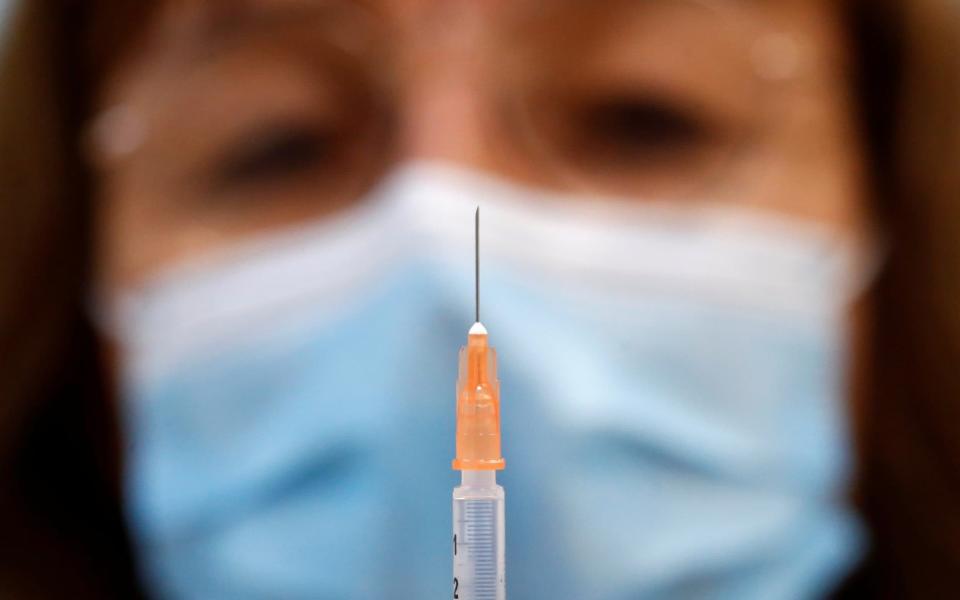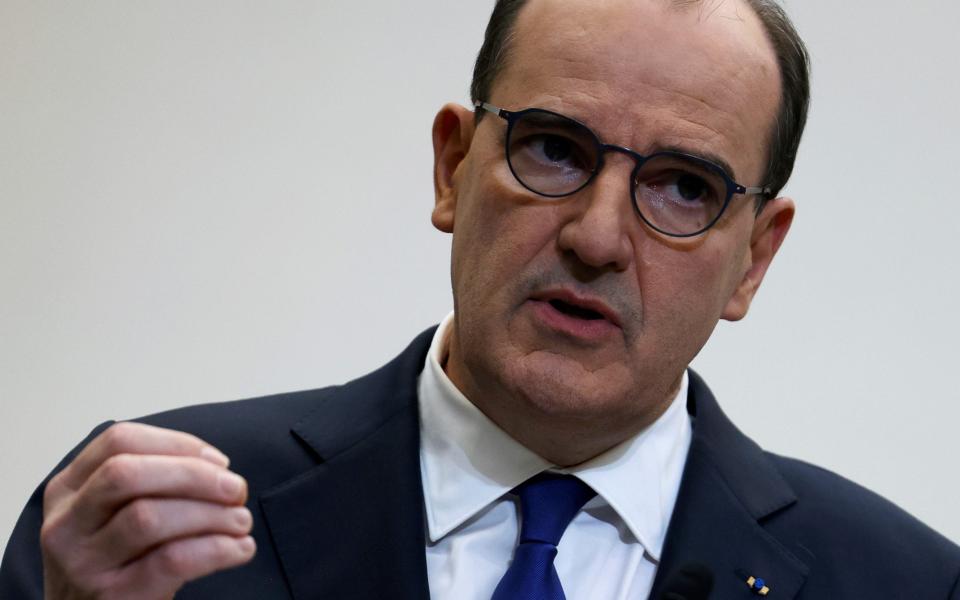Sceptical French finally come round to vaccination as majority say they want an anti-Covid jab

A majority of French people now want to be vaccinated against Covid-19 latest polls suggest in a major swing in favour of jabs from one of the world’s most vaccine-sceptic countries.
The development comes as France braces for a nationwide 6pm curfew on Saturday and tighter border controls as it seeks to avoid an influx of more contagious mutations, notably what it dubs “le variant anglais” (the English variant).
The French have been notoriously reticent about vaccination with polls before Christmas suggesting that only around 40 per cent intended to be inoculated, compared to 80 per cent in the UK and 65 per cent in Germany.
However, an Odoxa-Backbone Consulting poll for Le Figaro and Franceinfo this week suggests that 56 per cent of French are now in favour of being vaccinated - a jump of 14 percentage points compared to their pre-Christmas survey.
Since then, France has started rolling out its vaccination programme and the French have gone from scepticism to anger that the rollout isn’t fast enough compared to other countries. Some 81 per cent of French in the same poll criticised the speed of the rollout.

After a painfully slow start, 318,000 people had received jabs by Friday - mainly elderly retirement patients and staff and health workers over 50 or considered high-risk.
The over 75s will follow starting next week, along with 800,000 other high-risk individuals. Olivier Véran, the health minister, on Friday insisted France had enough doses to vaccinate 2.4 million people by then end of February.
Gaël Slimane of Odoxa put the sudden jump in those in favour of a jab to the rise of “the politics of supply”.
“Doubts were dispelled from the moment vaccination was concretely put in place in France and from the moment it had proved itself on millions of people around the world,” he said.
“There was no need to wait for a majority of French to be for vaccination to put it in place, on the contrary.”
The elderly are the most in favour, with men far more enthusiastic than women and city dwellers more in favour than country dwellers, the poll found.
Politically, supporters of President Emmanuel Macron were the most pro-vaccine and those of far-Right leader Marine Le Pen the least. After initially expressing scepticism, Ms Le Pen changed her tune late last week to say she would be getting.
However, scepticism remains high among many health and care workers with one government minister this week warning that only 20 per cent of retirement home staff were in favour. She called for a national awareness campaign.
Françoise Salvadori, an immunology specialist whose 2019 book Antivax, co-written with Laurent-Henri Vignaud, a science historian, examines vaccine scepticism in the west since the 18th century, said it was still a little early to say whether the tide had turned in France.
“We need to wait a bit and above all see what happens when retirement home residents have been widely vaccinated (old people are not the most anti-vaccine)," she said.
A close eye should be kept on “paramedics, nurses and auxiliary nurses who are in general rather sceptical even if they have a role to play in setting an example, like doctors, and we need them so much".
In France, only a fifth of retirement home staff are willing to be vaccinated, a government minister revealed earlier this week.

People in France are more sceptical of vaccines and the benefits of science than in any other country in the world, according to a major recent study on attitudes to science and health released in 2019.
In a survey of 140 countries – the largest to date – the Wellcome Trust and Gallup found that a third of people France, home of immunologist Louis Pasteur, do not believe that vaccines are safe, while 55 per cent now see science and technology as a threat to their employment prospects rather than a wealth creator.
Against this backdrop, French prime minister Jean Castex on Thursday insisted that mass vaccination was the best way to “hope for a progressive exit” from draconian restrictions “by next summer”.
In a press conference, he announced a nationwide 6pm curfew starting on Saturday, tightening one already in place since December which restricts movement from 8pm to 6am.
The earlier curfew notably aims to"counter the apéro effect”, according to Stanislas Guérini, a leading figure in President Emmanuel Macron's party. The fear is that people are flouting warnings to resist getting together for post-work, pre-dinner aperitifs.
Mr Castex described the country's situation as "worrying" with infections remaining at a "high plateau".
He also announced new restrictions for people arriving into the country.
People travelling from non-EU countries will no longer be allowed enter by presenting a negative result from a quick Covid-19 test, but cross-Channel truck drivers will be exempt, the French government said on Friday.
The new rules, which come into force from Monday, January 18, say people will no longer be able to use antigen, or lateral flow, tests that can deliver results within minutes.
Instead, they must take a PCR test within 72 hours of departure. These can take several days to produce the results, and are less widely available in Britain for people who do not have a medical justification for getting tested.
Both PCR and antigen tests had been accepted until now.
However, French transport minister Jean-Baptiste Djebbari said on Friday truck drivers would still, for the time being, be able to get into France by using one of the quicker tests "while waiting for a coordinated plan between European countries".
France has so far recorded more than 69,000 coronavirus deaths - the seventh-highest death toll in the world.

 Yahoo News
Yahoo News 
